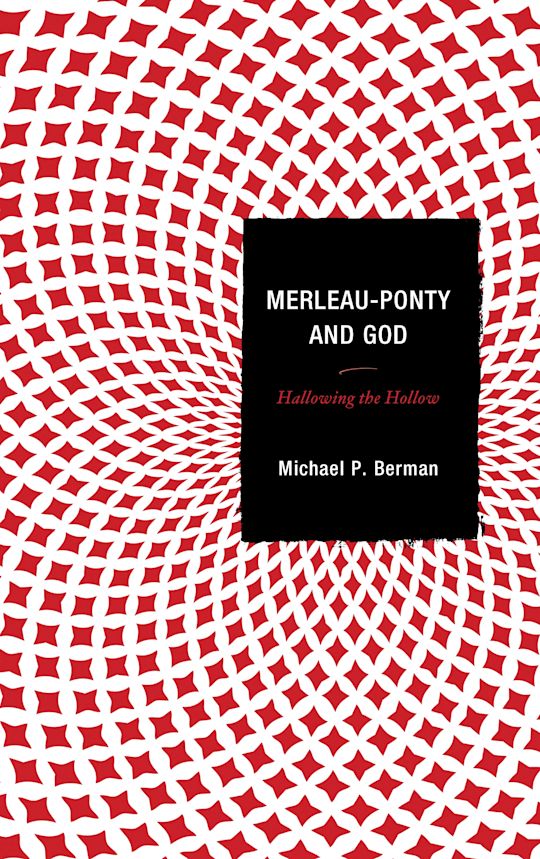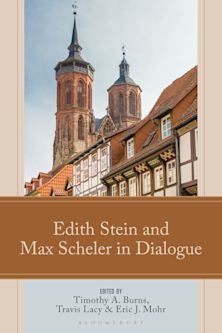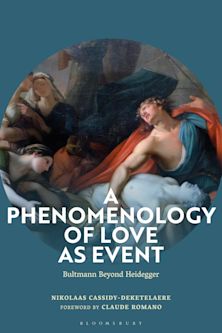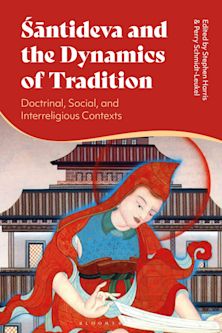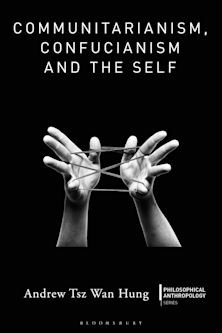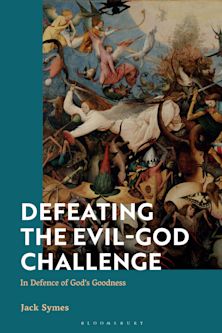- Home
- ACADEMIC
- Philosophy
- Philosophy of Religion
- Merleau-Ponty and God
This product is usually dispatched within 1 week
- Delivery and returns info
-
Free CA delivery on orders $40 or over
You must sign in to add this item to your wishlist. Please sign in or create an account
Description
Michael P. Berman’s Merleau-Ponty and God: Hallowing the Hollow examines issues in the philosophy of religion through the phenomenological and existential writings of the French philosopher Maurice Merleau-Ponty (1908–1961). Merleau-Ponty addressed issues like the nature of faith, the problem of evil, and the love and judgment of God. Throughout the book Berman explains and critically interrogates the religious perspectives articulated in Merleau-Ponty’s thought. Merleau-Ponty challenges us to think through these issues but always with an eye to our embodiment and perceptual experience. In this vein, Merleau-Ponty and God fleshes out the French philosopher’s treatment of God in his writings.
Merleau-Ponty and God will appeal to those interested in the philosophy of religion (inside and outside the academy), as well as scholars and students of Merleau-Ponty, continental philosophy, phenomenology, or existentialism.
Table of Contents
Preface
Introduction
Chapter One: Faith-Religious and Perceptual
Chapter Two: Love of God
Chapter Three: Vision of God
Chapter Four: Haunting of God
Chapter Five: Magic and Miracles of Phenomenology
Chapter Six: Judgment of God
Chapter Seven: Problem of Evil
Chapter Eight: Hallowing the Hollow
Bibliography
Index
Product details
| Published | Apr 10 2017 |
|---|---|
| Format | Hardback |
| Edition | 1st |
| Extent | 200 |
| ISBN | 9781498513210 |
| Imprint | Lexington Books |
| Dimensions | 240 x 157 mm |
| Publisher | Bloomsbury Publishing |
About the contributors
Reviews
-
The emergence of an explicit consideration of religion over the past few decades has deeply marked the landscape of Continental philosophy. Though these debates have engaged many philosophical traditions, by far the most prominent thread of Continental philosophy of religion was inspired by phenomenology. Those working in this area frequently draw on Levinas, Derrida, Marion, et al. Merleau-Ponty has been considered far less, and, with a few notable exceptions, his work has been largely overlooked by the field. This omission is perhaps not surprising, however, given Merleau-Ponty’s philosophical priorities, which rarely directly engage the typical questions and topics of philosophy of religion. Berman (philosophy, Brock Univ.) attempts to re-situate Merleau-Ponty’s authorship (as a developmental whole) by arguing that Merleau-Ponty offers important original contributions to the philosophy of religion. This well-written, well-researched book will be of use not only to Merleau-Ponty scholars but also to philosophers of religion interested in phenomenological approaches to traditional ideas such as faith, love, miracles, and the problem of evil. Summing Up: Recommended. Upper-division undergraduates through faculty.
Choice Reviews
-
With discussions of religion, embodiment, and transhumanism prevalent in both philosophical discourse and in society more broadly, Berman’s Merleau-Ponty and God is a helpful and timely resource. In addition to fascinating insights connecting Merleau- Ponty’s thought to questions of the divine, what this book offers is the opportunity for further questions to be addressed regarding God in the field of continental philosophy of religion. This, though, is Berman’s overall intent. He writes that Merleau-Ponty and God comes out of his own personal wrestling with the question of God, and hopes that it will be “both evocative and provocative” for readers, whatever their life journeys may be (ix).
Dialogue: Canadian Philosophical Review
-
Merleau-Ponty and God tackles one of the most difficult problems in Merleau-Ponty’s thinking: what is the connection between the perceptual faith and religious faith? Berman shows with rigor and insight that, for Merleau-Ponty, perceptual faith merges with religious faith insofar as God is a continual call to question. Merleau-Ponty and God ends with a powerful comparison of Merleau-Ponty and Buber.
Leonard Lawlor, Sparks Professor of Philosophy, Penn State University

ONLINE RESOURCES
Bloomsbury Collections
This book is available on Bloomsbury Collections where your library has access.









